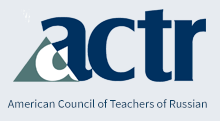Russian Language Journal
Keywords
language, research, Leaner Language Corpora, Russian
Abstract
To make inferences about how second language (L2) learners develop over time, most Second Language Acquisition (SLA) research has traditionally relied on cross-sectional one-time sampling design, in which data collected from different groups of learners at different levels of language proficiency are compared against a preestablished set of measures. Rarer are longitudinal studies, in which researchers track a small number of participants over a relatively long period of time. Recent developments in technology and the rise of the language corpora have made it possible to combine the benefits of these two approaches; longitudinal LEARNER LANGUAGE CORPORA, large databases collected continuously from a group of learners over an extended period of time (i.e., semester, year, or program), successfully combine “longitudinal designs with dense developmental data collection” (Vyatkina 2012), and thus hold promise of providing a more fine-grained picture of the ebbs and flows of language development.
Recommended Citation
Kisselev, O. V., & Alsufieva, A. A. (2017). The Development of Syntactic Complexity in the Writing of Russian Language Learners: a Longitudinal Corpus Study. Russian Language Journal, 67(1). https://doi.org/10.70163/0036-0252.1073


